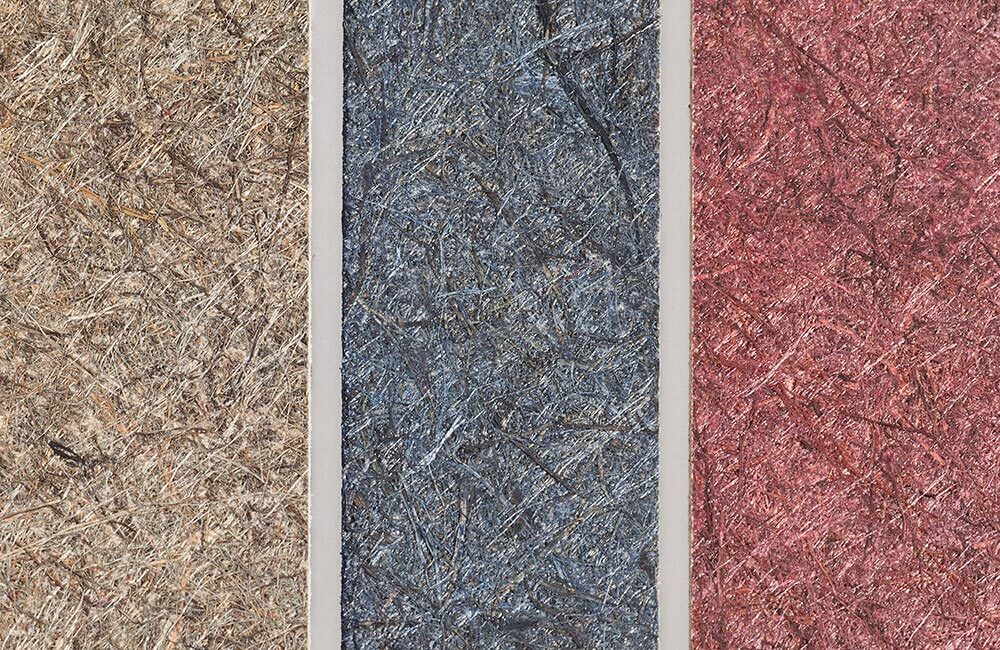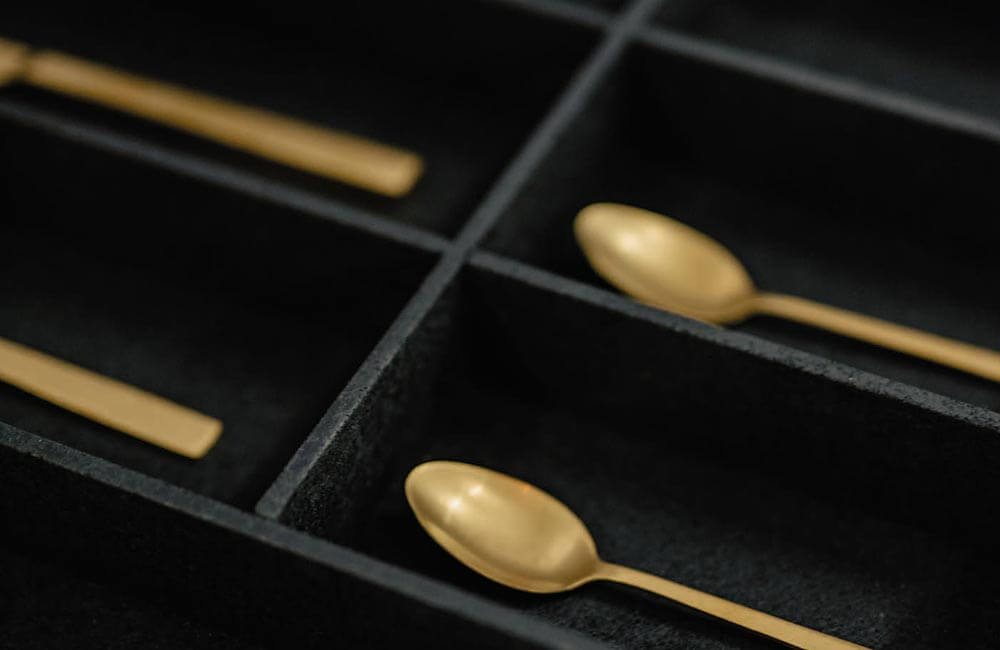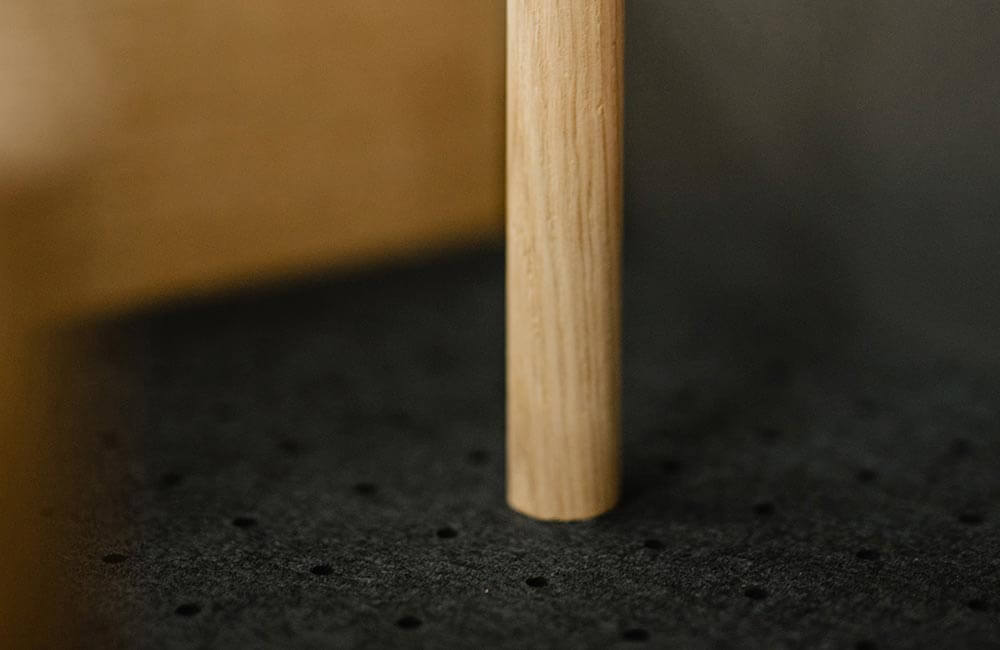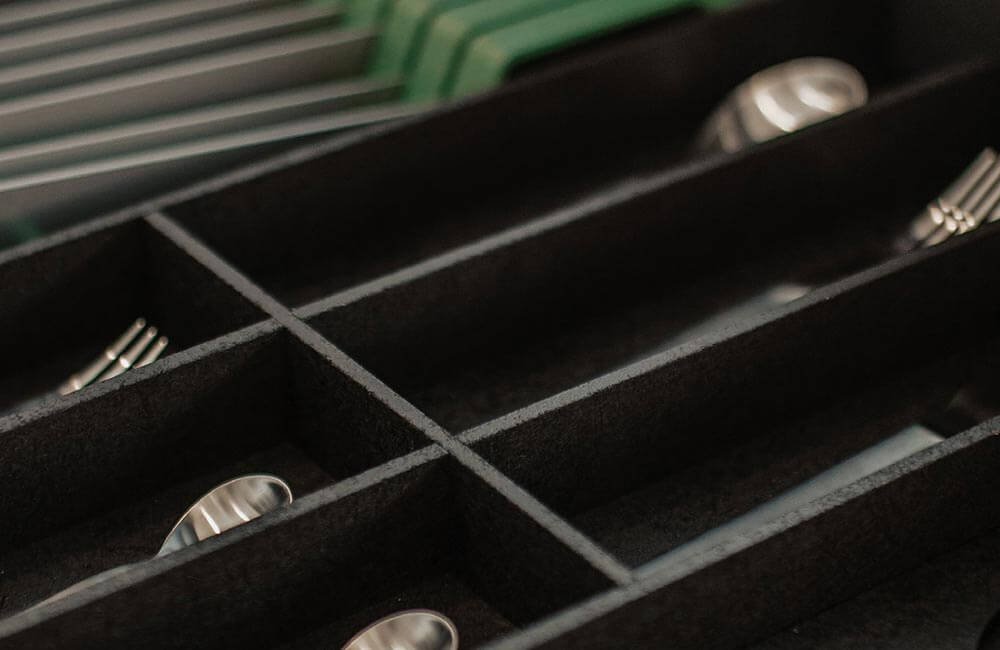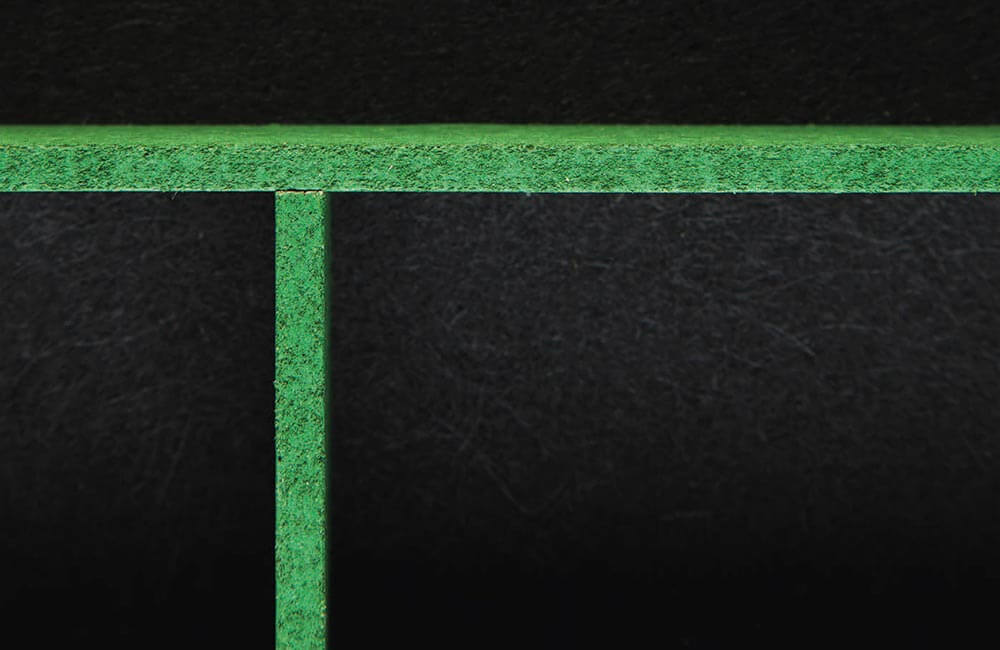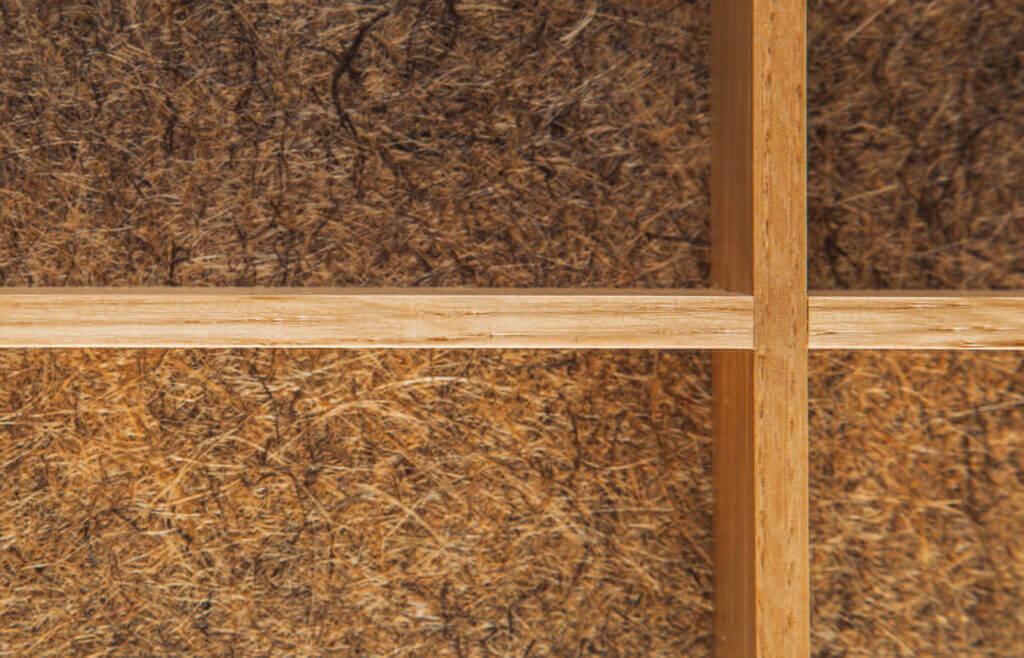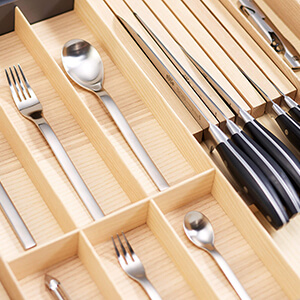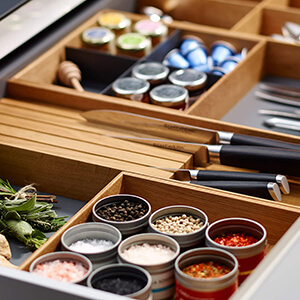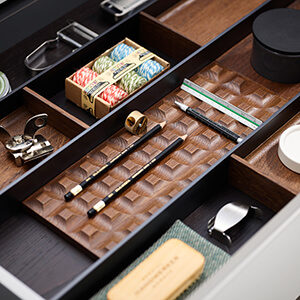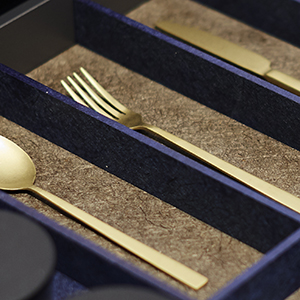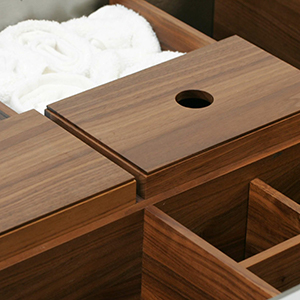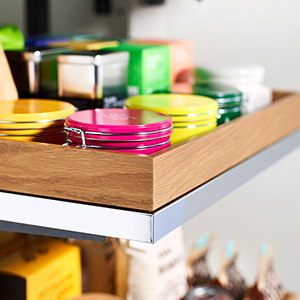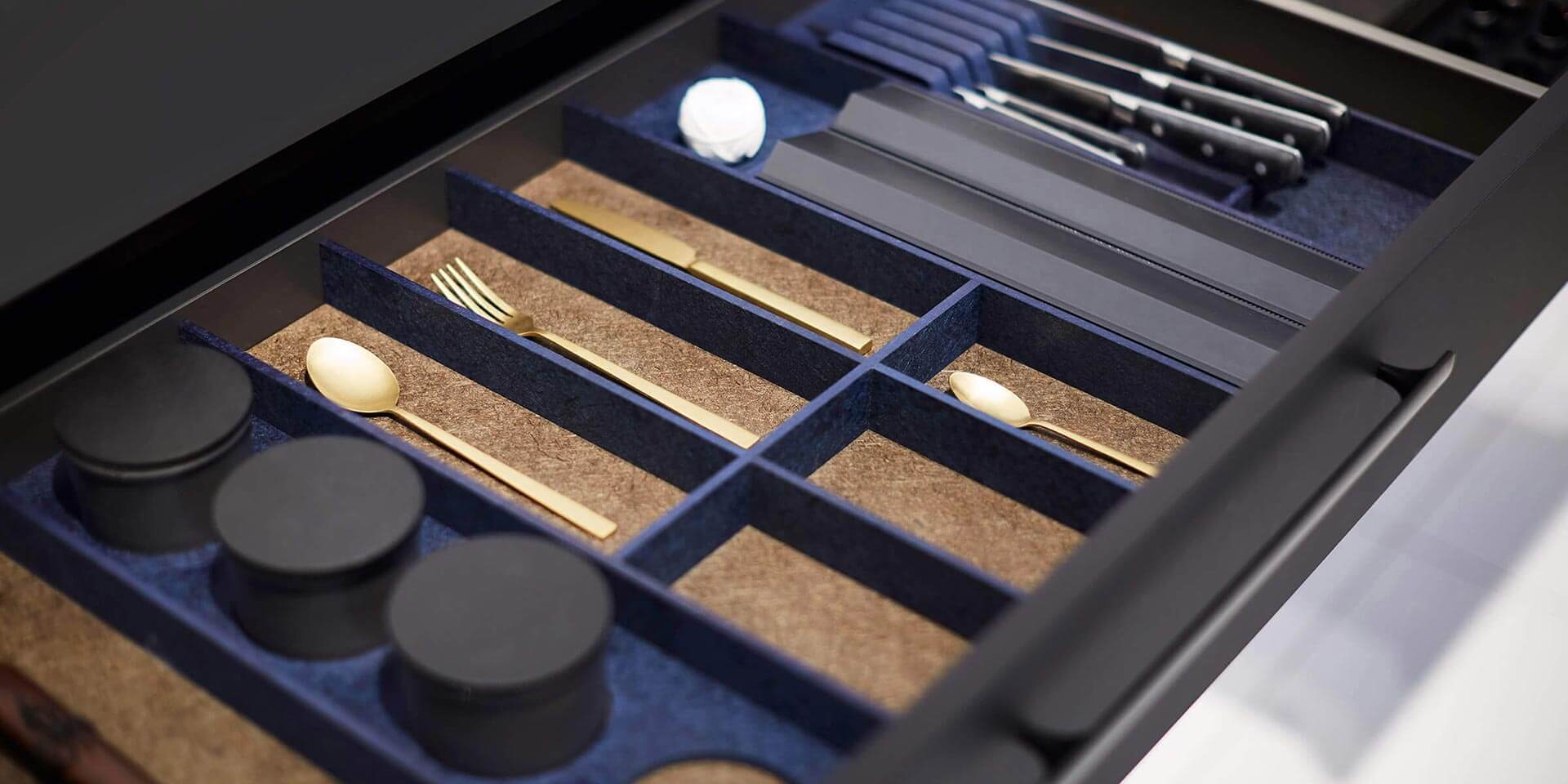
Foto: © Ralf Ruehmeier
German Sustainability Award Design for OrganiQ.
For 15 years now, the German Sustainability Award Foundation has been awarding the most prestigious prize for pioneering contributions to the transformation towards a sustainable future. Among the winners this year: OrganiQ, our innovative composite material that is a real alternative to solid wood, both aesthetically and in terms of price.
Sustainability.
In the use of resources, an innovative material preserves the regenerative ability of humans and the environment. OrganiQ is based on grasses that grow very quickly in poor, infertile soils and bind a relatively large amount of carbon dioxide. The fleece mats made from the plant fibres come from a regional supplier, less than 25 km from Rockenhausen.
Quality.
From material to production to recycling – in the development of OrganiQ in cooperation with the Institute for Composite Materials at the Technical University of Kaiserslautern, the focus was on the entire process chain. The perfect basis for producing OrganiQ with the existing equipment at the Rockenhausen woodworking plant in accordance with our stringent quality criteria.
Hemp.
Hemp is one of the world’s oldest and most versatile cultivated plants. Its strong, deep taproots with many branches ensure intensive soil penetration. The advantage of the fibres is their very high resistance to wear and tear. Products have a longer lifespan, while reuse through recycling is also possible.
Kenaf.
Hibiscus cannabinus, or kenaf, is known for its wire-haired stems and lobed leaves. The fibre plant from the mallow family is similar to jute, but contains less lignin than jute. This makes it less sensitive to light. Kenaf has good tensile and bending properties at low density. The light fibres improve the stiffness and dimensional stability of products.



